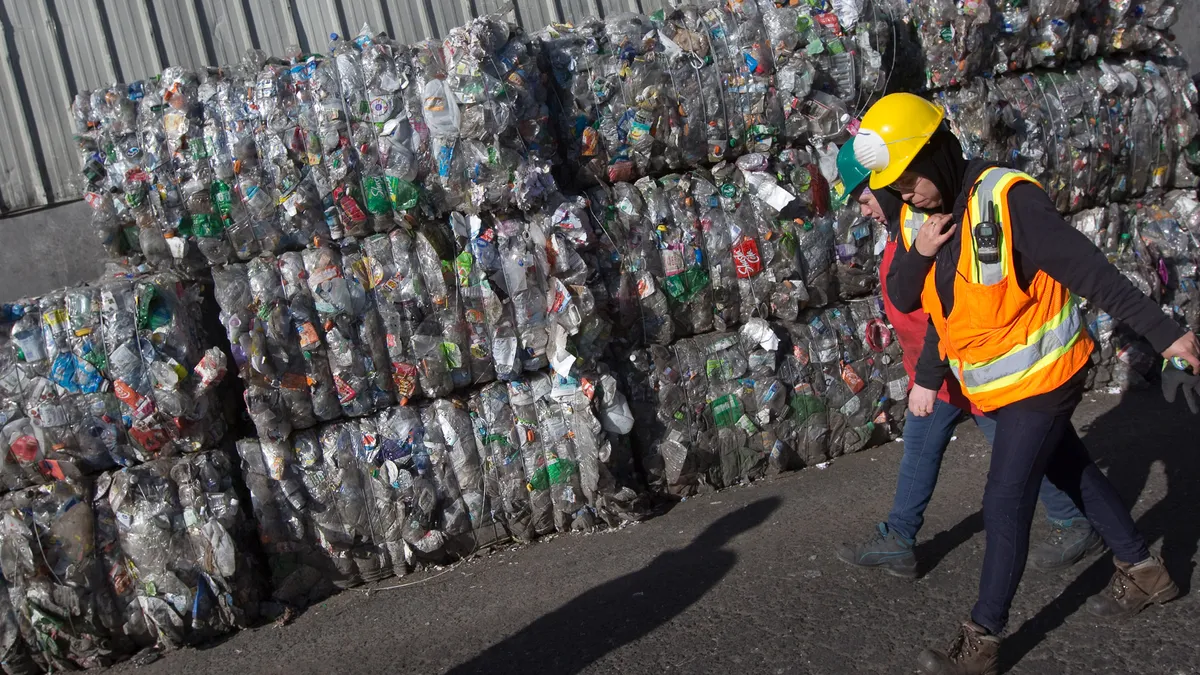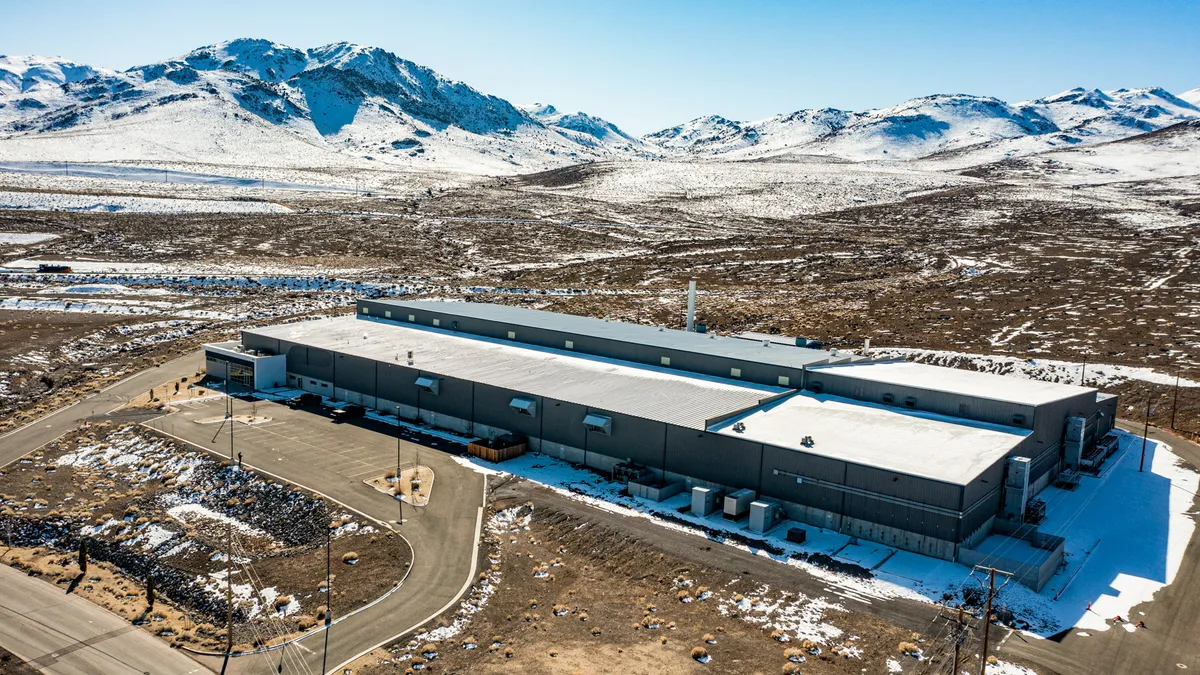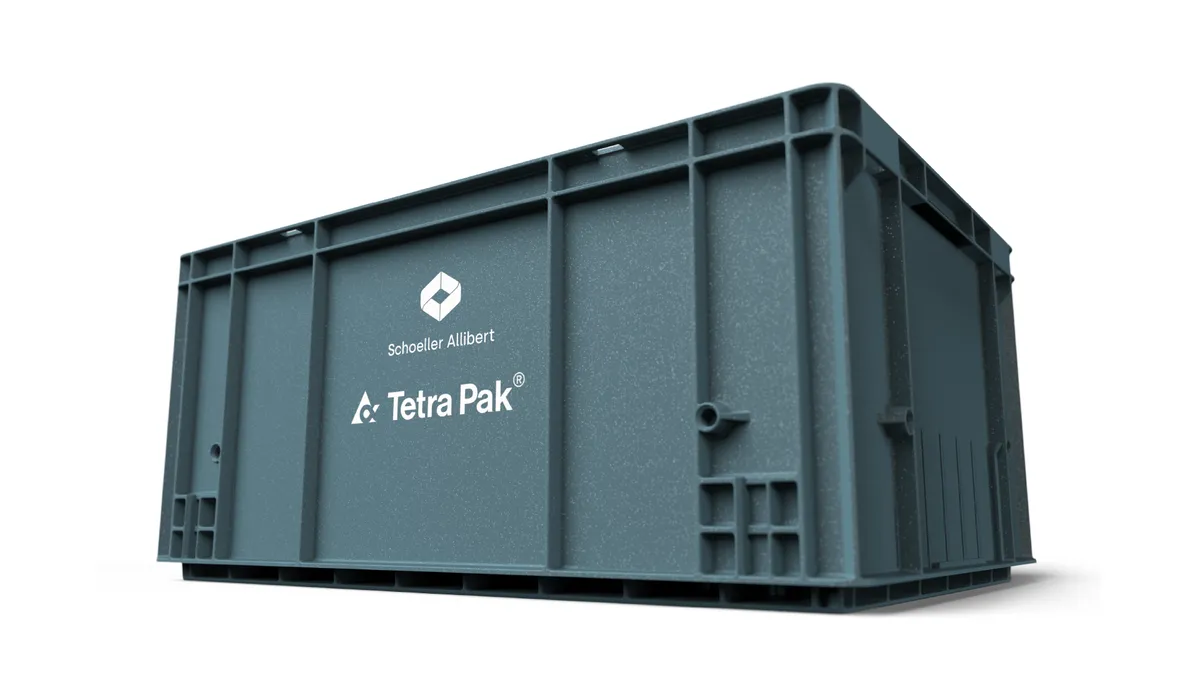Recycling and waste industry groups have raised concerns about how President Donald Trump’s proposed tariffs on Canada, Mexico and China could affect recycled commodity markets, operational costs and availability of key equipment and parts.
Trump signed executive orders this week enacting 25% tariffs on goods from Canada and Mexico, as well as an additional 10% tariff on imports from China. The administration said the tariffs are necessary to curb what it calls a “crisis” of fentanyl entering the U.S. It also criticized the countries for not doing enough to stop illegal immigration. Recycling and waste groups say they’re concerned the dynamic situation could prompt a trade war that might affect jobs and the economy.
Tariffs on items from Canada and Mexico products were supposed to take effect Tuesday, but the Trump administration agreed to pause such tariffs for 30 days after both countries said they would enact more efforts to prevent drug trafficking.
Prior to the pause agreement, Canadian Prime Minister Justin Trudeau had announced retaliatory tariffs in two phases, starting with a 25% tax on $155 billion worth of U.S. imports, including certain pulp and paper products. Certain steel and aluminum products could be added in a later update.
Meanwhile, China and the U.S. did not arrive at a deal to suspend tariffs. On Tuesday, China instead responded by issuing a 15% tariff on coal and liquefied natural gas, as well as a 10% levy on crude oil, vehicles and some agricultural machinery.
Trade groups such as the Recycled Materials Association and the National Waste & Recycling Association have spoken out against the issue.
“These tariffs would increase costs, disrupt supply chains, and hinder investment in critical infrastructure, ultimately raising prices for American consumers,” said Kirk Sander, NWRA senior vice president of safety and standards, in an emailed statement. NWRA members have invested almost $4 billion in recycling operation modernizations that would be jeopardized because of “undue financial burden on these essential services,” he said.
The tariffs could also hinder recycling industry job creation and harm domestic manufacturing, added Robin Wiener, president of the Recycled Materials Association, in a statement.
“These new tariffs, and any retaliatory measures they may provoke, will only reduce the competitiveness of our industry and the manufacturers that rely on recycled materials,” she said.
Shifting trade relationships
U.S. recycled commodity trade with Canada is a major part of the industry, with more than $8 billion in recycled materials crossing the border between the two countries each year. The U.S. is a net exporter of recycled materials to Canada, making the latter “one of the largest, if not the largest, export market for us for recycled materials,” Adam Shaffer, ReMA’s assistant vice president of international trade and global affairs, said in an interview.
Canada’s proposed tariffs on U.S. imports lists thousands of items, but as of Tuesday, “none of our recycled materials are on that retaliation list yet,” Shaffer said. Some items on the list typically contain recycled materials. He cautioned that the Canadian government could also add more types of products to the list.
“We're very concerned that some of these trade measures may not only impact what's happening in terms of trade of our products, but also of downstream manufactured goods, where recycled materials are key inputs,” Shaffer said.
The U.S. recycled commodities trade with Mexico is also a significant one, especially for recycled paper and ferrous products, he said. In 2023, the U.S. imported about $1.5 billion in recyclable commodities from Mexico and exported about $1.8 billion, Shaffer said.
Companies that operate close to the U.S. borders may feel localized effects on markets first, said Emily Friedman, recycled plastics senior market editor at ICIS.
Some waste companies that operate near the Canadian border have expressed concerns about the possible impacts tariffs might have on waste shipments, added David Biderman, president of Biderman Consulting, in an email.
About 3 million tons of solid waste from Ontario is disposed of in Michigan each year, Biderman said, and a “substantial amount” of hazardous waste generated in Michigan goes to Ontario for processing. “The tariffs are creating uncertainty on both sides of the border, which is never good for business.” he said.
However, the waste industry’s tendency to serve local markets instead of broad international markets could likely help shield the industry from the brunt of tariff impacts, according to an analysis from RBC Capital Markets. Waste companies like WM, Waste Connections, GFL Environmental and Republic Services, which operate in both the U.S. and Canada, are expected to have “a negligible impact from tariffs as these businesses are services-oriented and generally regional in nature.” according to RBC.
Recycled plastic markets could feel effects
Recycled plastic markets are likely to see a range of tariff impacts, with some recycled plastic commodities faring better than others, Friedman said. Overall, U.S. imports of recycled plastic commodities from Mexico have slowed over the last few years, she said, but Canada “has still been our number one trade partner when it comes to plastic scrap.”
In the case of recycled PET flake, however, U.S. converters often import the material from regions that are not included in these tariffs, such as from Southeast Asia and Latin America. Countries in those regions may gain an even stronger foothold in the rPET market, “which may weaken our existing relationships with Canada and Mexico further.” she said.
However, some converters, particularly closer to the borders, still rely on rPET bales from Canada and Mexico and will likely feel direct impacts from the tariffs.
“That could mean higher prices, and then a readjustment of what converters and brands see as realistic incorporation [of recycled content] based on those higher prices.” Friedman said.
The tariffs could impact prices for virgin PET resin imported into the U.S. from Mexico, which may put pressure on domestic virgin resin prices. If virgin prices rise, recycled PET may have a chance to compete at a lower price point. “Virgin has been really cheap. That's been difficult for recyclers,” she said.
Meanwhile, on the recycled PE side, Friedman is monitoring prices for natural HDPE bales. “The U.S., Canada and Mexico have been very strong trade partners when it came to HDPE bales, because you can't really find another replacement,” she said, noting that the region’s reliance on HDPE jugs for milk and juice isn’t as common in other parts of the world.
“We've already had very aggressive pricing for U.S. natural bale material, and that has driven some interest in international trade from the UK and Australia. So maybe that just means it gets that much stronger, and those relationships really form in this interim period.” Friedman said.
Though recycled plastics trade between China and the U.S. has dwindled over the years, Friedman said there’s a small chance that the U.S.’ 10% tariff on Chinese goods might affect the U.S. plastics market down the line. Some of her sources believe tariffs on Chinese imports could impact virgin PET pricing due to manufacturing costs, and that could eventually impact U.S. PET prices, she said.
Lingering questions on equipment impacts
Waste and recycling sectors are each monitoring how any new tariff actions could affect prices and availability for specialized equipment that typically comes from international manufacturers.
Many types of recycling and waste equipment imports, such as sorting machines, come from European companies or suppliers. Some recyclers and equipment manufacturers also rely on parts from China, Friedman said.
Shredder wear parts imported from China are likely to face uncertainty under new tariff arrangements. These wear parts, which ReMA considers to be important to the recycling industry, have typically been exempt from existing U.S. tariffs on certain Chinese goods, but the latest exemption from the U.S. Trade Representative expires on May 31. There’s no guarantee the Trump administration will seek to renew that exemption, Shaffer said.






















